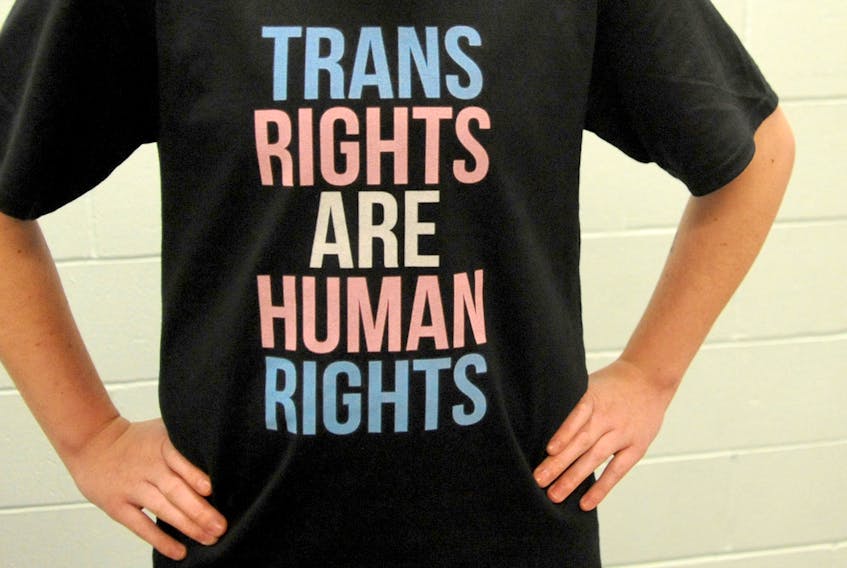ST. JOHN'S, N.L. —

As someone who throughout my career and life has taken a keen interest in the areas of human rights and mental health, I am struck by the ways that these two issues usually intertwine.
As a general principle, countries that have a greater respect for human rights also tend to have better mental health outcomes and provide higher levels of service for those who experience difficulties with their mental health.
What this means is that your chances of success in life are often strongly influenced by where you were born.
This is particularly true if you are a transgender person.
If you are born in a country that is not part of the developed world, which includes much of the world population, chances are that you will have no rights as a transgender person and may actually face severe persecution if anyone was to know that this is your identity.
The possibility of gender-affirming surgery would be just a dream and your mental health would likely be severely compromised by the stress of keeping your secret and the lack of access to any mental health services that might be available that said secrecy would enforce upon you.
If you are born in a developed country, your chances are improved but there is a broad range of acceptance and services available to you. In Japan, there is a degree of acceptance in this largely conservative society but there are also some serious human rights failings. Japan’s Supreme Court recently upheld a 2004 law that effectively forced transgender people to be sterilized before they can have their gender changed on official documents. This takes away a person’s freedom to choose how and if they want to become biological parents and while gender-affirming surgery is available, it is forced upon you if you want to change your gender designation.
In the United States, there is a greater degree of freedom and choice.
However, the Supreme Court there recently upheld a ban on transgender people serving in the military that was brought in by President Donald Trump in 2017, reversing a policy allowing transgender people to serve openly in the military which had passed during the Obama administration.
With estimates of between 8,000 and 15,000 transgender people serving in the military, one can only imagine the fear and stress they are presently undergoing and the potential negative impact on their long-term mental health.
In Canada, human rights are respected and this also applies to transgender citizens.
They are not barred from any workplaces and have access to gender-affirming surgery. Here, the fight is about funding and the steps one needs to follow to qualify for this procedure.
Because of the respect for human rights, transgender people can speak up for their rights, as evidenced by the recent public appeal by a Blair Curtis, a young transgender man from McIvers, who has launched a Human Rights complaint around the need for assessment in Ontario before MCP will cover surgery and the wait time to access this service.
He noted in his argument that not having access to these surgeries has a great impact on the mental health of transgender people and research supports his assertion. A national survey conducted in 2017 by the University of British Columbia found that close to 70 per cent of transgender youth considered suicide within the previous 12 months, far above the national average.
With figures such as these prevalent in Canada, I can only imagine what the rates may be like in other parts of the world. It should be a very simple proposition — transgender people are human beings and thus deserve the full respect, dignity and rights afforded to all other humans.
Mental health is no different than physical health and should receive the same level of attention and funding in medical care. When we combined the two, we create a society in which all members have an equal opportunity to reach their personal and health goals and overall standards of living rise for all of us.
Brian Hodder is an LGBTQ2 activist and works in the field of mental health and addictions. He can be reached at [email protected].
Related story:
Transgender man files human rights complaint against Newfoundland and Labrador government









